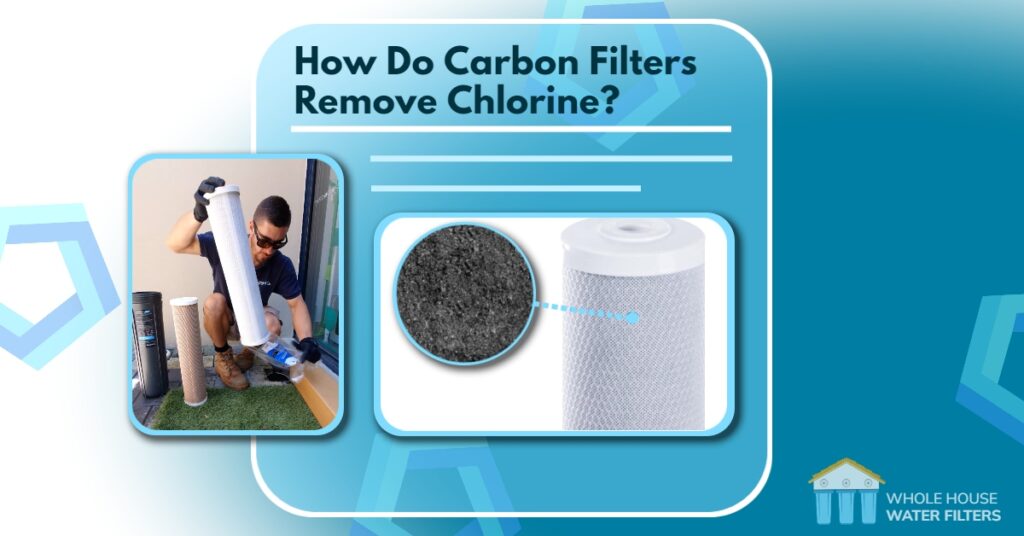Carbon Filters
How do Carbon Filters Remove Chlorine?
Carbon filters work by using activated carbon, which is a form of carbon that has been treated to make it more porous and increase its surface area. This increased surface area allows the activated carbon to trap and adsorb certain chemicals and impurities, including chlorine.
Chlorine is a highly reactive chemical, and when it comes into contact with activated carbon, it undergoes a chemical reaction that causes it to be trapped and held within the carbon’s pores. This process is known as adsorption.
Activated carbon filters are commonly used in water treatment systems, where they can effectively remove chlorine and other impurities from the water. The carbon filters are designed to allow water to flow through the activated carbon, where the chlorine is adsorbed, leaving the water clean and free of impurities.
It’s important to note that while activated carbon filters can remove chlorine, they may not be effective against all types of contaminants. It’s important to choose the right type of filter for your specific needs and to follow the manufacturer’s instructions for installation and maintenance to ensure optimal performance.
See AquaCo Carbon Replacement Filters here.


